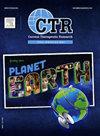Herbal Self-medication Practice for Coronavirus Disease 2019 in Sudan: A Public Survey, 2021
IF 1.5
Q3 MEDICINE, RESEARCH & EXPERIMENTAL
Current Therapeutic Research-clinical and Experimental
Pub Date : 2024-01-01
DOI:10.1016/j.curtheres.2024.100761
引用次数: 0
Abstract
Background
The coronavirus disease 2019 (COVID-19) emerged in China in late 2019 with high rate of spread and transmission. As there was no recognized therapy many people worldwide used herbs in attempt to help their body overcome the disease.
Objective
This study aims to evaluate the use of herbs by patients with COVID-19 in Sudan and tries to identify a possible role in cure or lowering the severity of the illness.
Methods
A cross-sectional population-based online survey was done targeting those who experienced COVID-19 among Sudanese through an online internet-based questionnaire distributed on social media platforms (mainly Facebook and WhatsApp). Descriptive statistics used to summarize data and present it as frequency tables and graphs. Multivariate logistic regression was used to measure the association between independent variables (comorbidities and use of herbs) and the outcome variable reflecting the severity of the disease (hospitalization).
Results
A total of 204 responses received from COVID-19 former and active cases. Typical symptoms of the disease were identified: fever (68.1%), cough (52.7%), shortness of breathing (59.3%), sore throat (76.5%), and loss of smelling and/or taste (67.2%). All the respondents reported using traditional herbs or plants for cure with strong statement of their usefulness. Citrus plants such as lemon, orange, and grape fruits, were the commonest, used by 94%, followed by the local herbs, acacia (65%), ginger (56%), baobab fruit (46%), hibiscus (45%), black seed (45%), and cinnamon (17%). Other used plants included onion (29%) and garlic (24%). An adjusted analysis found that obesity was associated with higher hospital admission, while using herbs had no effect on hospital admission.
Conclusions
All participants reported the use of herbs for cure beside other treatment. The most commonly used herbs were citrus fruits followed by acacia and ginger and other herbs. All participants stated that herbs were useful for their recovery, however our analysis revealed no significant effect on rate of hospitalization. We recommend further deeper, well-designed study to better assess the effect of herbs.
苏丹 2019 年冠状病毒病的草药自我治疗实践:2021 年公众调查
背景2019年冠状病毒病(COVID-19)于2019年末在中国出现,传播速度快,传播范围广。本研究旨在评估苏丹 COVID-19 患者使用草药的情况,并试图确定草药在治愈或降低疾病严重程度方面可能发挥的作用。方法通过在社交媒体平台(主要是 Facebook 和 WhatsApp)上分发基于互联网的在线问卷,针对苏丹 COVID-19 患者开展了一项横断面人群在线调查。描述性统计用于总结数据,并以频数表和图表的形式呈现。多变量逻辑回归用于衡量自变量(合并症和使用草药)与反映疾病严重程度的结果变量(住院)之间的关联。典型的疾病症状包括:发烧(68.1%)、咳嗽(52.7%)、呼吸急促(59.3%)、喉咙痛(76.5%)、嗅觉和/或味觉丧失(67.2%)。所有受访者都表示使用传统草药或植物进行治疗,并强烈表示它们非常有用。最常见的是柑橘类植物,如柠檬、橙子和葡萄,使用率为 94%,其次是当地草药、金合欢(65%)、生姜(56%)、猴面包树(46%)、木槿(45%)、黑种子(45%)和肉桂(17%)。其他常用植物包括洋葱(29%)和大蒜(24%)。调整后的分析发现,肥胖与较高的入院率有关,而使用草药对入院率没有影响。最常用的草药是柑橘类水果,其次是金合欢、生姜和其他草药。所有参与者都表示草药对他们的康复很有帮助,但我们的分析表明,草药对住院率没有显著影响。我们建议进一步开展更深入、设计更合理的研究,以更好地评估草药的效果。
本文章由计算机程序翻译,如有差异,请以英文原文为准。
求助全文
约1分钟内获得全文
求助全文
来源期刊
CiteScore
3.50
自引率
0.00%
发文量
31
审稿时长
3 months
期刊介绍:
We also encourage the submission of manuscripts presenting preclinical and very preliminary research that may stimulate further investigation of potentially relevant findings, as well as in-depth review articles on specific therapies or disease states, and applied health delivery or pharmacoeconomics.
CTR encourages and supports the submission of manuscripts describing:
• Interventions designed to understand or improve human health, disease treatment or disease prevention;
• Studies that focus on problems that are uncommon in resource-rich countries;
• Research that is "under-published" because of limited access to monetary resources such as English language support and Open Access fees (CTR offers deeply discounted English language editing);
• Republication of articles previously published in non-English journals (eg, evidence-based guidelines) which could be useful if translated into English;
• Preclinical and clinical product development studies that are not pursued for further investigation based upon early phase results.

 求助内容:
求助内容: 应助结果提醒方式:
应助结果提醒方式:


